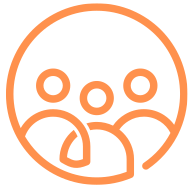Tailoring Dei Programs for Different Industries: One Effective Strategy
In today's ever-evolving professional landscape, the importance of Diversity, Equity, and Inclusion (DEI) programs cannot be overstated. Insights from a CEO and a Founder reveal the significance of aligning DEI initiatives with industry demands and revamping hiring practices to eliminate biases. This Q&A article explores four expert insights, each offering unique strategies to effectively tailor DEI programs to specific industries or sectors. From aligning DEI with industry demands to revamping hiring practices to eliminate biases, discover actionable strategies to enhance organizational inclusivity.
- Align DEI with Industry Demands
- Tailor DEI to Organizational Identity
- Focus DEI on Industry-Specific Challenges
- Revamp Hiring to Eliminate Biases
Align DEI with Industry Demands
DEI leaders consistently achieve the most measurable impact by aligning their company initiatives with their industry's competitive demands. For instance, a tech CDO reduced recruiting costs while expanding underrepresented talent pools by partnering with coding boot camps. Similarly, a healthcare CDO grew their hospital's share of a diverse patient base by addressing cultural and language barriers through strategic hiring and training. These CDOs met their DEI objectives in both cases while helping their companies become more competitive within their industrial space.
Tailor DEI to Organizational Identity
Tailoring is essential in this next evolution of DEI. We dedicated a whole section of our book, The Conscious Communicator: The fine art of not saying stupid shit, walking readers through the importance of tailoring in The DEPTH Model. "T" in DEPTH is for Tailoring.
Tailoring guides organizations to be true to where they are in DEI work and customize DEI work authentically. Like marketing, we need to tell our unique story and how we differentiate from others in our category by tying it to our core capabilities and competencies.
Simply ask, "Is this our lane?" when considering what to prioritize. If it's a topic that they know nothing about or if they have no power or influence to contribute to solving it, then speaking or acting externally could cause more harm than good to trust and reputation.
Tailoring DEI work and messaging shows where they can weigh in to add to the knowledge and move the needle externally while providing ongoing customized support for employees.
Organizations constantly stipulate that they can't say something about everything, which is true to a point. Tailoring lights a clear path for each organization to discover its own identity in DEI work overall. They can't do all of the things, but they must do THEIR thing.
Tailoring highlights the organization's unique competencies, strengths, and influences. Tailoring frees organizations to tell their unique story as a part of a larger whole.

Focus DEI on Industry-Specific Challenges
We've learned that successful DEI programs must be tailored to each industry's unique DNA. In healthcare, for instance, we found that traditional diversity metrics weren't enough - we needed to focus on creating a workforce that truly mirrors our patient population. When we shifted our approach to actively recruiting bilingual staff and implementing cultural competency training specific to the communities we serve, we saw immediate improvements in patient satisfaction and health outcomes.
What makes this work is looking beyond generic solutions. We can't apply a tech company's DEI playbook to a manufacturing floor - the challenges and opportunities are completely different. The key is starting with solid data about your industry's specific barriers, setting relevant benchmarks, and creating targeted initiatives that make sense for your workforce. In our experience, when DEI programs are built around real industry challenges rather than general best practices, they drive meaningful, lasting change.

Revamp Hiring to Eliminate Biases
Tailoring DEI programs to specific industries requires a deep understanding of their unique challenges and opportunities. For example, I worked with a manufacturing company struggling to recruit and retain diverse talent, particularly women and underrepresented groups in technical roles. My years of experience in business coaching, combined with insights from my extensive research on entrepreneurship and organizational success, allowed me to identify systemic issues in their recruitment practices and workplace culture. We revamped their hiring process to focus on skills-based assessments, eliminating biases from initial screenings. Simultaneously, we developed mentorship programs and upskilling initiatives to support diverse employees in climbing the career ladder. This approach not only diversified their workforce but also improved retention and morale. The key to this success was leveraging my expertise in recruitment strategies and operational efficiency to align the DEI program with their operational goals. By analyzing industry-specific data and applying targeted strategies, we achieved an increase in diverse hires within a year and reduced turnover. These results stemmed from addressing the organization's unique dynamics and aligning DEI initiatives with measurable business outcomes. It's this kind of precise, results-driven approach that has consistently set my coaching apart and delivered lasting impact across industries.



